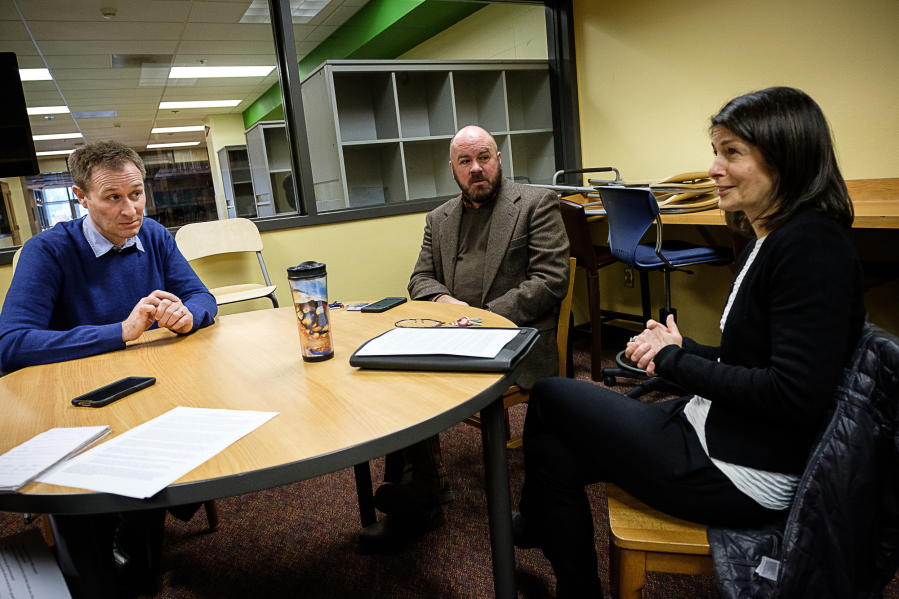Mental health provider Children’s Center has taken steps to meet kids where they’re at and, as it happens, some of them hang out at Boys & Girls clubhouses.
Legacy Health System recently granted $150,000 — or $50,000 over three years — to the Boys & Girls Clubs of Southwest Washington to go toward part-time therapists at three of its clubhouses.
“We’re seeing kids who’ve experienced terrible things in their life,” said Elise Menashe, executive director. Most club members taking part in after-school or summer programs live in poverty and many come from single-parent families. “We were finding that our kids needed additional support.”
Legacy’s Community Health Fund has given out 48 grants totaling $8 million since 1998, said Brian Willoughby, director of community benefit at Legacy. This year, besides the grant to the Boys & Girls Club, Legacy is giving money to Portland-based free clinic Southwest Community Health Center to support a nurse practitioner.
The grants are meant as incubator money to launch a new program. In 2006, Children’s Center received money from the Community Health Fund to start the COACHES Program, a specialized treatment and training program for preschool and school-aged youth affected by methamphetamine — a program still happening today, said Matthew Butte, development director.
Over the years, the Boys & Girls Clubs has received small grants to occasionally bring in therapists and train staff.
“This provides stability for three years and it gives us time to find a new resource to help fund this program down the road,” Menashe said.
The grant will cover education and training for regular club staff members, many of whom are young and in college studying related fields. And, therapists from Children’s Center will be placed at Washington Elementary School, the O.K. Clubhouse and the Teen Turf Club.
The program may morph and expand to other clubhouses, Menashe said. She’s looking to get therapists who cater to different age groups. It’ll start out with therapists getting to know kids at the clubhouses, like any other staff member would. Then, they’ll move onto group therapy such as art therapy and yoga.
“Being on site, at places like this, also reduces stigma,” Willoughby said. “It isn’t ‘Oh, I’m going to my appointment with my therapist.’ It’s just in daily life I’m getting support for issues we all have or all struggle with.”
Willoughby said Legacy was attracted to the project’s holistic approach and the way it would be integrated into regular clubhouse activities. It may also help prevent particularly troubled club members from getting kicked out for, say, fighting or bringing a weapon to a clubhouse.
“If we have a young person who is having some difficulties, really we want to get to why they’re having the difficulties and try and understand where we can help,” Menashe said. “Usually kids act out for a reason. It’s not acting out because they want to get in trouble, it’s because something’s going on inside of them.”
Therapists will be able to refer children with more severe, chronic mental health issues to more extensive therapy. Clubhouse staff have seen children struggling with issues such as depression, suicidal ideation, self-harm and substance abuse. Menashe said some children don’t have those kinds of issues but may just need to reduce stress.
Willoughby said Legacy is focusing on behavioral health and wants to catch problems upstream rather than wait for catastrophe.
“If you address issues when somebody is 7 versus when somebody is 40, you’re going to have more chance to change behaviors and make different outcomes down the road,” Willoughby said. “If you do up-front work to be healthier it’s going to cost much less and you’re going to have a much better quality of life.”
The program begins in April.




